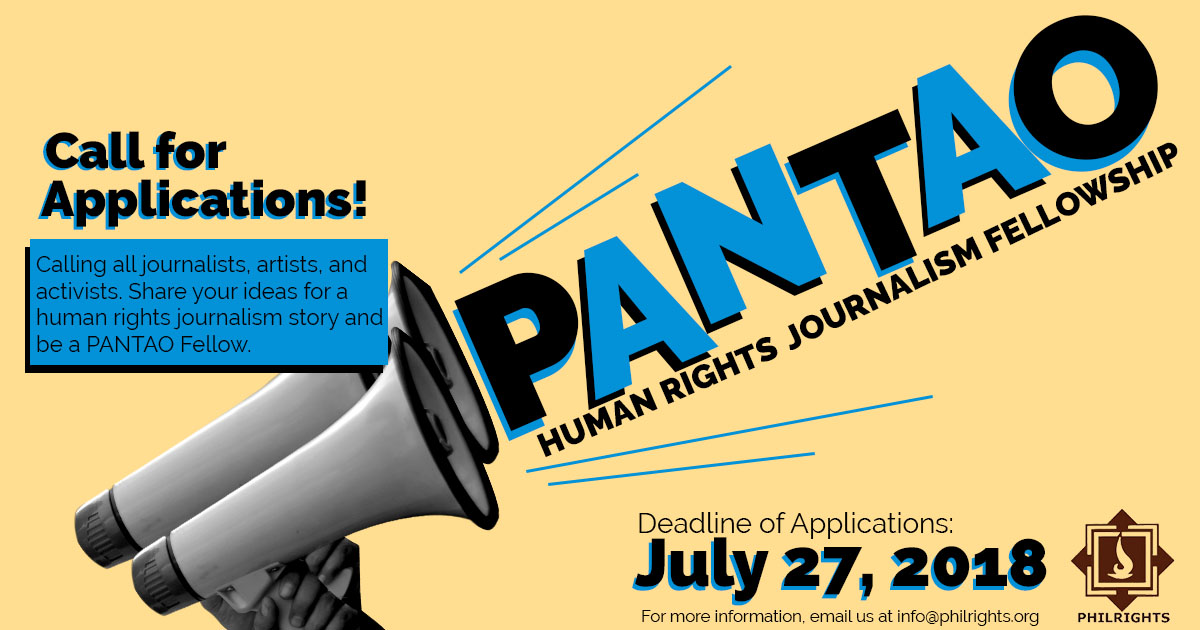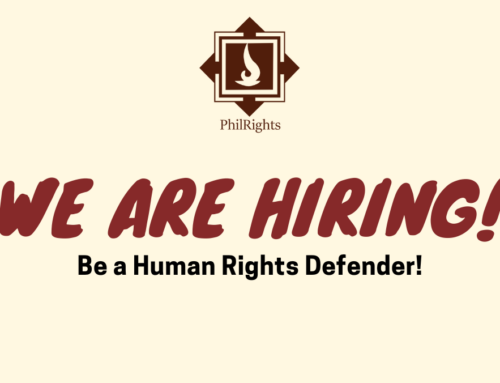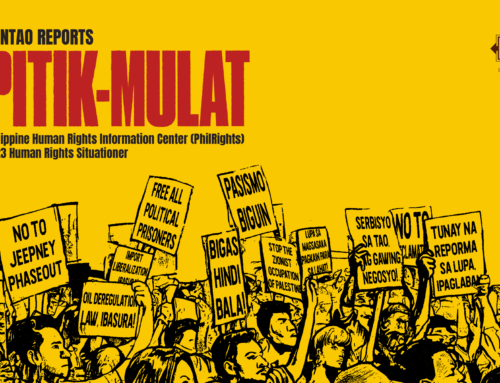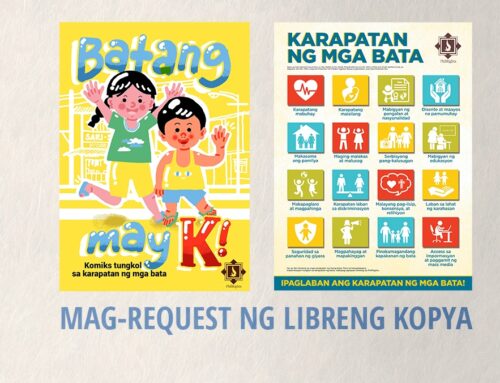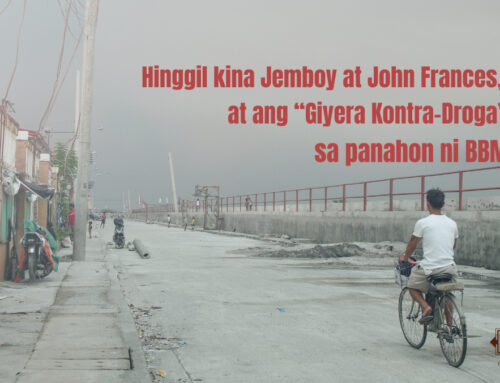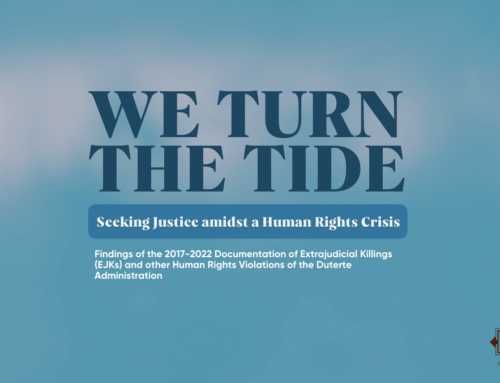PhilRights believes in the power of storytelling as an instrument for positive change. At a time when civic spaces are at risk and the journalism establishment faces mounting state and industry pressures, the public is deprived of substantial and in-depth issues-based exploration of human rights issues. Now, more than ever, we believe that human rights journalism must be harnessed and supported.
The PANTAO Human Rights Journalism Fellowship is PhilRights’ contribution to the building of spaces for truthful and changemaking journalism. It is intended to provide opportunities for journalists, artists and advocates to conduct intelligent, nuanced and brave reporting on human rights issues. We want to support projects that reveal state abuses and wrongdoing and their multifarious negative impacts on the human rights and dignity of Filipinos.
Who are eligible for the Fellowship?
Filipinos who are professional and citizen journalists, artists, and advocates with a strong understanding of human rights issues in the country and are passionate in communicating these issues to the public. Applicants with existing affiliations and connections with reputable human rights organizations are highly encouraged to join. Individuals or teams may apply.
What does the Fellowship entail?
The inaugural 2018 round will provide a minimum Php 20,000 and maximum Php 40,000 to fund, entirely or partially, at least one journalistic piece focusing on human rights issues. The funds will be disbursed in two tranches, 50% upon proposal approval and 50% upon submission of final output.
Submitted applications will be subject for review and approval by a committee of human rights experts and journalists. PhilRights will also offer guidance in story development and direction to ensure adherence to the human rights framework and to rights-based approaches in reporting.
Publication and release of the story will be subject to standard editorial processes, including fact-checking and legal review.
What subject areas can be explored?
We want to support stories that involve one or a combination of issues focusing on these areas:
- Civil and Political Rights
- Economic, Social, and Cultural Rights
- Children’s Rights
Stories that explore human rights issues of Education, Environment, Gender, Health, Housing, Indigenous Peoples, Labor, Peace and Conflict are also highly encouraged.
What story formats are accepted?
Traditional longform storytelling is welcome. Applications that aim to incorporate multimedia forms such as photography and audio-visual media are also encouraged. Any and all innovations in presentation and format must always be in the service of telling the story in the best and most accessible manner possible.
How will applications be evaluated?
The applications will be assessed by their strengths in the following areas:
- Urgency of the proposed story
- Impact potential on state accountability
- Strength of storytelling approach/es
- Public engagement potential
Proposal Format
The application may be accomplished through this link https://goo.gl/forms/INPTsgGKqk93TCA32
Deadlines and Timetables
Applications may be submitted until Friday, July 27, 2018. Applicants will be contacted on the last week of July if their applications have been shortlisted for review. Additional supporting documents may be requested.
All Fellows must submit their final outputs no later than December 31, 2018.
For more information, please contact us.



